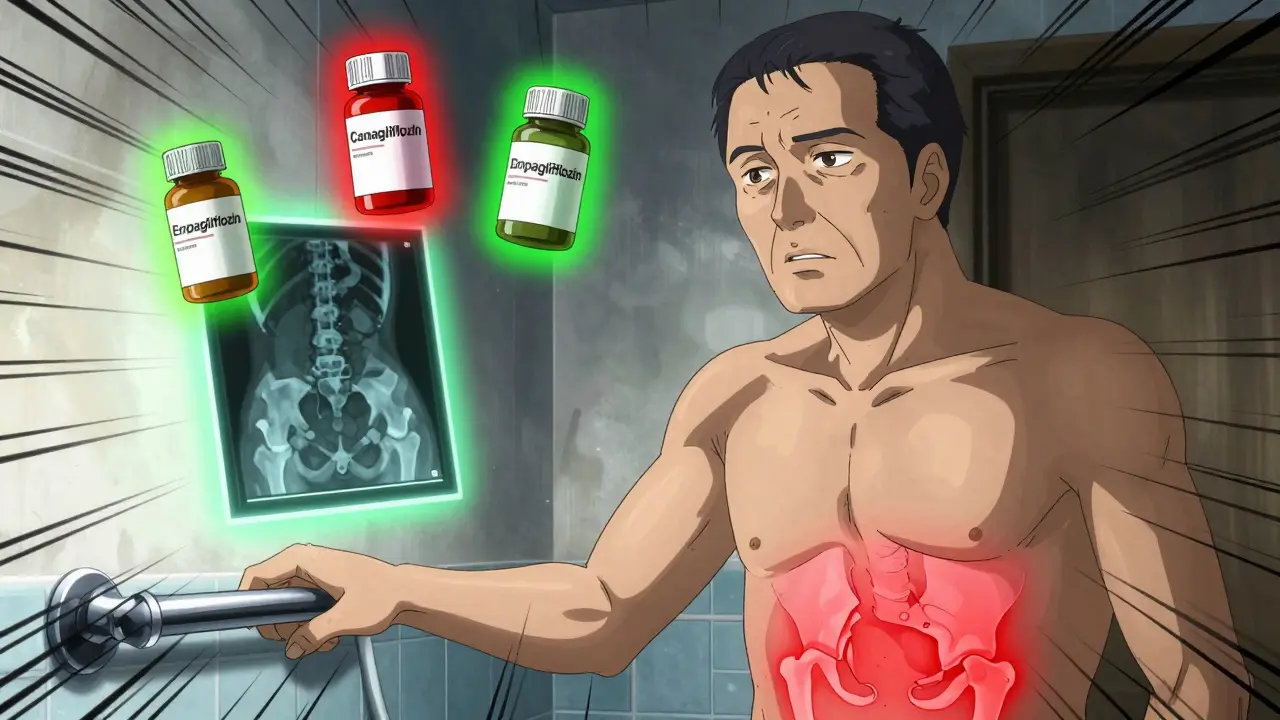Bone Health: Simple Steps, Smart Supplements, and Trusted Medications
Did you know you start losing a tiny bit of bone each year after you turn 30? It sounds scary, but the good news is you can slow—or even stop—that loss with a few easy changes. On this page we’ll break down the everyday habits that protect your skeleton, the over‑the‑counter options that really help, and the prescription meds doctors rely on for osteoporosis and other bone‑related issues.
Everyday Habits for Strong Bones
First up, move your body. Weight‑bearing activities like brisk walking, dancing, or light jogging send a signal to your bones to stay dense. You don’t need a marathon; 30 minutes a day, three to five times a week, is enough to make a difference. If joints hurt, low‑impact choices like swimming or cycling still support overall health without over‑loading fragile spots.
Next, focus on nutrition. Calcium is the building block, but you also need vitamin D to absorb it properly. Dairy, leafy greens, fortified plant milks, and a modest amount of sunshine cover most needs. For people who avoid dairy, a calcium‑rich supplement (500‑600 mg per day) paired with 800‑1000 IU of vitamin D works well.
Don’t forget lifestyle factors that weaken bone. Smoking cuts blood flow to bone tissue, and excessive alcohol (more than three drinks a day) interferes with calcium balance. Cutting these habits can improve bone density faster than you might expect.
Medications and Supplements to Consider
If you’ve been diagnosed with osteoporosis or have a family history of fractures, a doctor may suggest prescription options. Bisphosphonates—such as alendronate (Fosamax) or risedronate (Actonel)—slow bone breakdown and are the most commonly used first‑line drugs. They’re taken weekly or monthly, and side effects are usually mild stomach irritation.
Another class, selective estrogen receptor modulators (SERMs) like raloxifene, can help post‑menopausal women keep bone density without the risks of hormone replacement. For severe cases, doctors might recommend injectable medications like denosumab (Prolia) or even anabolic agents such as teriparatide, which actually build new bone.
On the supplement side, besides calcium and vitamin D, magnesium and vitamin K2 have growing evidence for supporting bone health. A daily magnesium dose of 300‑400 mg and a modest amount of vitamin K2 (45‑90 µg) can complement the primary nutrients.
When choosing any product, look for reputable Canadian pharmacies—like Canada Pharma Hub—that verify the source, require a prescription when needed, and list clear pricing. This protects you from counterfeit pills and hidden costs.
In short, strong bones come from a mix of movement, balanced nutrition, and, when necessary, medically‑approved treatments. Keep an eye on your risk factors, talk to your healthcare provider about a bone‑density scan if you’re over 50, and start building a routine that keeps your skeleton sturdy for years to come.
SGLT2 Inhibitors and Bone Health: What You Need to Know About Fracture Risk
SGLT2 inhibitors help manage diabetes and protect the heart and kidneys, but canagliflozin may raise fracture risk in vulnerable patients. Learn which drugs are safe for bone health and what steps to take if you're at risk.
How Bone Health Impacts Fluid Retention and Edema
Explore how calcium, vitamin D, hormones and kidney function connect bone health with fluid retention, and learn practical steps to strengthen bones while reducing edema.


